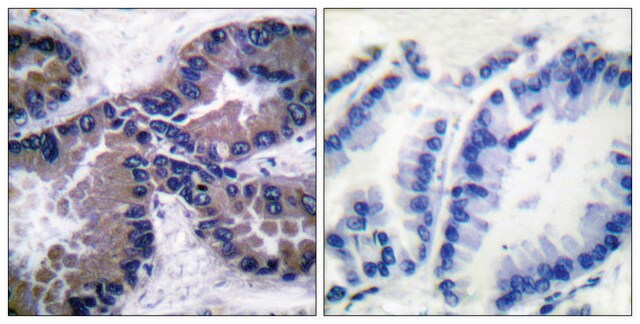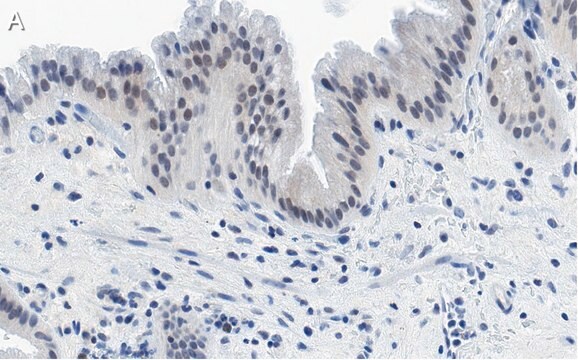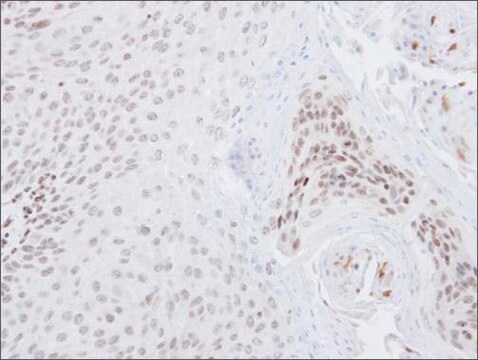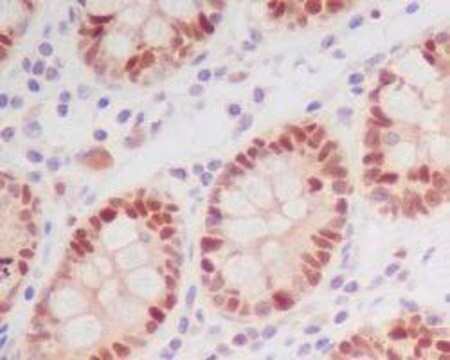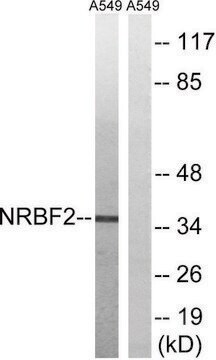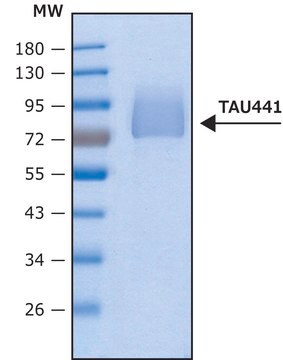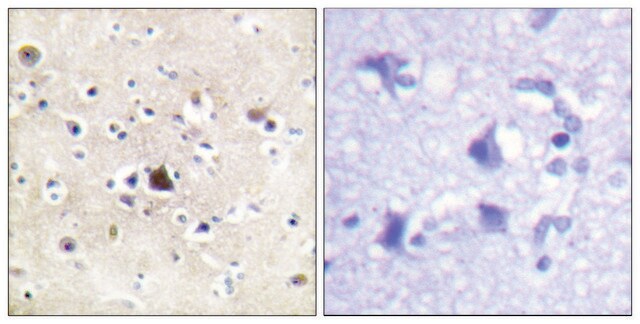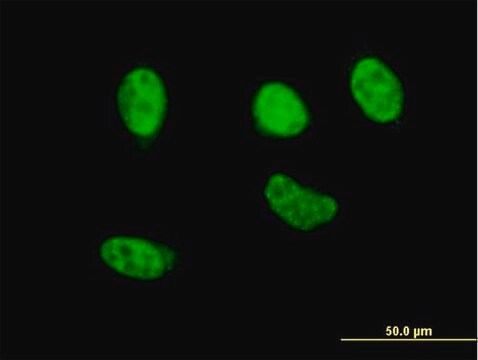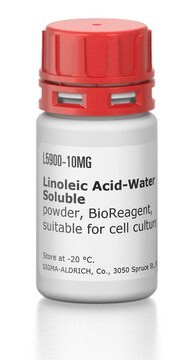MABC1556
Anti-NRF2 Antibody, clone 6H11.1
clone 6H11.1, from mouse
Synonym(s):
NFE2L2, Nuclear factor erythroid 2-related factor 2, NF-E2-related factor 2, NFE2-related factor 2, HEBP1
About This Item
Recommended Products
biological source
mouse
Quality Level
antibody form
purified immunoglobulin
antibody product type
primary antibodies
clone
6H11.1, monoclonal
species reactivity
human
technique(s)
immunohistochemistry: suitable (paraffin)
western blot: suitable
isotype
IgG1κ
UniProt accession no.
shipped in
ambient
target post-translational modification
unmodified
Gene Information
human ... NFE2L2(4780)
General description
Specificity
Immunogen
Application
Apoptosis & Cancer
Quality
Western Blotting Analysis: 0.5 µg/mL of this antibody detected NRF2 in 10 µg of HepG2 cell lysate.
Target description
Physical form
Storage and Stability
Other Notes
Disclaimer
Not finding the right product?
Try our Product Selector Tool.
recommended
Storage Class Code
12 - Non Combustible Liquids
WGK
WGK 1
Certificates of Analysis (COA)
Search for Certificates of Analysis (COA) by entering the products Lot/Batch Number. Lot and Batch Numbers can be found on a product’s label following the words ‘Lot’ or ‘Batch’.
Already Own This Product?
Find documentation for the products that you have recently purchased in the Document Library.
Our team of scientists has experience in all areas of research including Life Science, Material Science, Chemical Synthesis, Chromatography, Analytical and many others.
Contact Technical Service